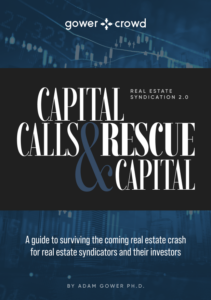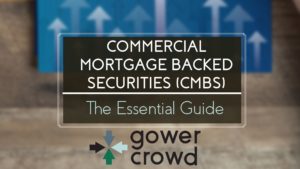What do lenders look for when applying for a commercial real estate loan?
Introduction
Most people are familiar with the process of obtaining a residential home loan. The process is relatively straightforward. Most lenders use a simple formula to determine someone’s creditworthiness, based on factors such as their credit score and liquid assets.
Applying for a commercial real estate loan is a lot more complicated, simply because there are more loan products available and lenders have several other factors to consider when evaluating someone’s creditworthiness. For example, a borrower’s personal credit score, though important, is just one of a great many factors influencing whether a commercial loan is made. Commercial loans are much more heavily influenced by the value of the property itself, including its revenue-generating potential.
In this article, we look at the many factors lenders consider when someone is applying for a commercial real estate loan.
Related: The Step by Step Ultimate Guide to Starting a Real Estate Syndication Company
Purpose of a commercial real estate loan
Nearly all commercial property is purchased using a commercial real estate loan. This is true whether the buyer is purchasing land for development, a stabilized asset, or a property in need of significant renovations. Occasionally, a buyer will purchase a property using cash for simplicity’s sake (generally, for the purpose of closing quickly) but immediately thereafter, will pull their cash out by putting a loan on the property. Using commercial real estate loans to purchase, construct or rehab property is what is known as “leverage.”
Commercial real estate loans usually represent anywhere from 50- to 80-percent of the purchase value. This debt is paired with equity to cover the balance of the transaction. Most lenders will want to see the borrower have some equity in the deal, at least 5- to 10-percent. The rest of the equity can come from various sources, including equity pooled from multiple passive investors through a fund or syndication.
Learn about the secrets of real estate investing and more with our free training.
Lender requirements for a commercial real estate loan
As noted above, lenders have more robust processes for making commercial real estate loans. Unlike residential lenders, who evaluate borrowers on the basis of their personal credit scores and personal finances, commercial lenders have several other factors to consider. For example, a commercial lender will want to carefully consider who is part of the sponsor’s (i.e., borrower’s) development team and their track record with similar property types and asset classes. They will evaluate the sponsor’s business plan and determine whether they believe the sponsor can execute that plan accordingly. They will want to understand the property’s revenue generating potential and will then stress test several factors to determine their best- and worst-case scenarios. A lender is always the first to be repaid in the capital stack, so lenders take that into consideration as well. Their level of risk is much lower than equity investors, but there is still some degree of risk, nevertheless.
Below is a list of the factors that will all influence the type and terms of the loans available to someone seeking a commercial real estate loan.
Collateral
There are two ways to think of collateral. Technically, the term “collateral” refers to the specific property that is secured by the commercial real estate loan. When used in this context, collateral is referring to merits of the deal itself – in other words, what is the quality of the asset to which the lender is affixing a loan? In the event of default, is it a piece of collateral that lender will want to take back?
Let us say a property is in a great location, in great condition, has strong cash flow, and the borrower is putting a lot of equity into the deal. This is a great piece of collateral. A lender will be more likely to extend credit, and credit at great terms, to a borrower with a great piece of collateral than one that seems to be potentially higher risk.
The second way to think of collateral is in terms of the borrower’s portfolio that could be liquidated or leveraged to repay the loan if need be. Borrowers with large, liquid, and high-quality existing portfolios will have an easier time getting a commercial real estate loan than someone who does not.
Creditworthiness
When lenders look at a borrower’s creditworthiness, they do not evaluate credit the same way that lenders would if you were taking out a residential loan. In other words, they are not looking at the sponsor’s FICO score as a leading indicator of creditworthiness. That is because the larger someone’s portfolio, the less likely they are to have the net-worth necessary to guaranty repayment of the entire loan amount.
Instead, lenders will look at the borrower’s credit score in the context of other credit risk factors, such as their track record with repayment, their reputation (either the lender knows of you in the market or they don’t), their relationship with the bank (if you’re new the bank, they might want 2-3 bank references), and their overall financial wherewithal, which includes a borrower’s personal finances, their company’s finances, their ability to access capital (debt and/or equity), and the quality of their existing real estate portfolio (including liquidity and ability to leverage if need be).
As you can see, determining someone’s creditworthiness is much more complicated when dealing with multifamily loans.
Experience
Commercial real estate experience is also critically important for those seeking financing. Borrowers have many more financing options if they have a proven track-record in the industry. They will have more types of loans available to them, across debt categories, with multiple players chomping at the bit to extend credit at great terms.
Let us say someone has no experience and wants to buy their first 50-unit apartment building. It is not impossible to do, but they will have fewer options and will typically have more “substituting” factors – such as having to have a larger personal guarantee and/or a higher quality guarantee (meaning the borrower might have to partner with someone who has more industry experience).
There are ways to mitigate a lack of experience. A borrower will have to provide something to a lender that gets them comfortable with the fact that they don’t have experience, such as putting more equity into the deal, or showing the bank that they have strong third-party partners such as a highly experienced general contractor and property manager.
Absent experience, a borrower should expect to pay an above-average interest rate on their first few deals until they have a track-record to make a bank feel more comfortable.
Related: 7 Ways You Can Invest in Commercial Real Estate Online
Preparing for the application process
Adequately preparing for the application process is critical. Most deals have strict timelines that a buyer needs to meet; arranging financing can really slow down that process. To streamline efforts, a borrower should begin by pulling together all their personal credit and financial information (including that of any co-partner). This includes copies of all bank statements and retirement or other investment accounts. Do the same for all business financials if purchasing the property through a separate entity.
It is also important to gather information about the property, including the rent roll and copies of all financial statements. This may include a copy of the current owner’s tax returns, which will confirm how much revenue the property generated the year prior. It is always best to have three to five years of trailing financials for the property being financed.
The lender will also want to see a copy of the sponsor’s business plan as well as a third-party appraisal, but the latter will not be available until the lender orders the appraisal which happens after the loan application process has begun.
Commercial real estate loan sources
Most people tend to think that only large banks offer commercial real estate loans. In fact, there are many different commercial real estate loan sources. Commercial lenders may be among the most popular, but other sources of real estate debt include life insurance companies, agency lenders (for multifamily loans), hard money lenders, debt funds and online marketplaces.
Here is what you need to know about each of those commercial real estate loan sources.
Traditional lenders
When someone refers to a “traditional” lender, they are generally referring to a traditional bank where someone may also have a checking or savings account. At the national level, lenders include Wells Fargo, JPMorgan Chase and Bank of America, among others. Many local and regional banks also offer commercial real estate loans.
Most borrowers will first reach out to their existing bank to inquire about a commercial real estate loan. This is a good place to start, but borrowers should then quickly expand their search. One suggestion is to contact the bank that currently holds the loan on the property (assuming the seller still has a loan on the asset). This is because the lender will already be familiar with the property and its financials, which may make the lender more likely to extend a loan to the new owner. That lender will usually have a lot of familiarity with the local market, as well, given their experience with the existing borrower.
Typically, the smaller the bank, the more local the decision-making will be. This means that the local bank can be more flexible in the terms that they are willing to offer. However, small local banks can only lend so much (they usually have what are known as “portfolio caps”). This is where larger banks come into play. Borrowers in search of loans in excess of $10 million will usually want to contact a national lender, and these banks have higher lending limits than smaller, more locally based banks.
Hard money lenders
Hard money lenders are third-party financiers that generally offer loans at above-market rates. For example, a hard money lender might charge 12% interest on a deal that a traditional lender might charge just 5.5%.
Hard money lenders can generally move much faster than traditional lenders. In a multi-offer situation, if a borrower needs to acquire a down payment or is seeking to make an all-cash offer, a hard money lender can provide cash quickly. This allows the borrower to put up the cash in the short-term while they figure out a longer-term financing solution.
Someone might seek a hard money loan depending on the nature of a deal, too. High-risk deals (and/or high-risk borrowers) might struggle to obtain traditional commercial real estate financing; they may have no other option than to pursue a hard money loan. Upon project stabilization, they can then refinance the deal to repay the hard money lender and put lower cost, long-term debt on the property.
Peer to peer marketplaces
Peer-to-peer (P2P) marketplaces – often referred to as crowdfunding platforms – have become more common in recent years as the federal regulations governing securities have changed. There are many marketplaces now exclusively focused on arranging debt and equity for commercial real estate deals. Platforms like RealtyMogul and CrowdStreet are some of the most popular.
These P2P marketplaces are often used by those who need alternative sources of capital, or for some other reason (e.g., poor credit or lack of track record), have been unable to arrange more conventional financing. These loans may come with high interest rates and/or high origination fees, so this is something for borrowers to consider as well.
Conduit lenders
Conduit loans are commercial mortgages that have been pooled together with other commercial loans, and then packaged and sold to investors on a secondary market as bonds. Commercial mortgage-backed security (CMBS) loans are an example of a conduit loan. Conduit loans tend to be long-term loans on properties with stable cash flows, and therefore, usually have relatively attractive interest rates compared to other loan sources.
The big challenge with conduit loans it that, once the loan is packaged and resold elsewhere, it can be difficult for the borrower to track down a decision-maker who can modify the loan down the road. For example, when COVID-19 hit, many borrowers worked with their lenders to renegotiate their loans to include an interest-only period, which bought borrowers some time to weather the impacts of the pandemic. This renegotiation can be difficult with conduit loans.
Finding the right lender
Choosing the right lender will depend on the specifics of any given deal. Some borrowers have unique circumstances that will make one commercial real estate loan (or lender) more attractive than the others. For example, if a borrower is tending to owner-occupy the building (or a portion thereof) for their own business purposes, they may be eligible for certain financing compared to someone who was planning to hold the property for strictly investment purposes.
It is always worth speaking with multiple lenders before choosing which real estate loan is best for you. All too often, a borrower will opt to go with the first lender they speak with, only to later find out that they could have gotten better terms elsewhere. Even a slight modification to loan terms can have a dramatic impact on the total cost of capital.
Conclusion
It can take anywhere from 45 to 60+ days to close a commercial real estate loan, so anyone looking to arrange financing will want to start the process early to ensure it does not stall closing on the property per the terms of their agreement. Always be sure to ask the lender what their expectations are in terms of their ability to close on the schedule you need. And of course, the more front-end work someone can do to have their financial information in order, the better.
Anyone who feels overwhelmed by the commercial real estate lending process may want to meet with a commercial real estate loan broker. These brokers are third parties who have relationships with many lenders. They will have a sense for what terms you might be able to get, and accordingly, which lender may be best for your specific deal. They will shop the deal around for you and will serve as your advocate when looking at different types of financing.
Commercial real estate loans are a crucial part of the CRE investing process, and as such, are important for all investors to understand.
Maximize your returns. Minimize your risks. How? Through some of our premium courses. Enroll now.
If you liked this article and would like to learn more about raising capital for real estate investing, check out some of the resources below:
If you have only just started in real estate development, have completed no deals, have no email list, but know you want the freedom and wealth being a real estate developer brings, then I suggest your first step is to start evaluating deals so you can recognize a good one when you see it.
Here’s where you should start. You’ll learn everything you need to know – the different types of real estate, different development strategies, how real estate cycles influence the market, and all about due diligence.
If you want to find deals and raise money for them so you can start your real estate development business, then learning how to conduct due diligence so you can pitch your deals better to investors is a great place to start.
If you’ve already purchased one or more real estate project and are seeing more opportunities than you can finance, then now is the time to start building your investor network so you can finance all your next deals quicker.
You’ve already got some momentum; now start finding and educating prospects about what you’re doing so you can build an email list of people to pitch to when you’re ready to raise money for your next deal.
This is what we build for private clients all the time – it’s called the Investor Acquisition System and you can access the entire program right here so you can find prospects, and convert them into being deep pocketed, repeat investors in your deals.
If you are a seasoned pro with multi-cycle experience, a substantial portfolio, a decent deal pipeline, and find yourself spending too much time raising equity capital because you’re still doing it in-person, then it’s time you put technology to work for you.
The wonderful thing about doing this is that you’re not going to be doing anything different than you’re already doing and, guess what, you’ll never have to sit through investor meetings again.
Sounds crazy I know, but I lay the whole thing out for you in this white board workshop where I personally show you exactly what it takes for you to transform your equity raising into a fully automated, capital raising machine so you can find new investors while increasing commitments from your existing network.
RELATED ARTICLES





